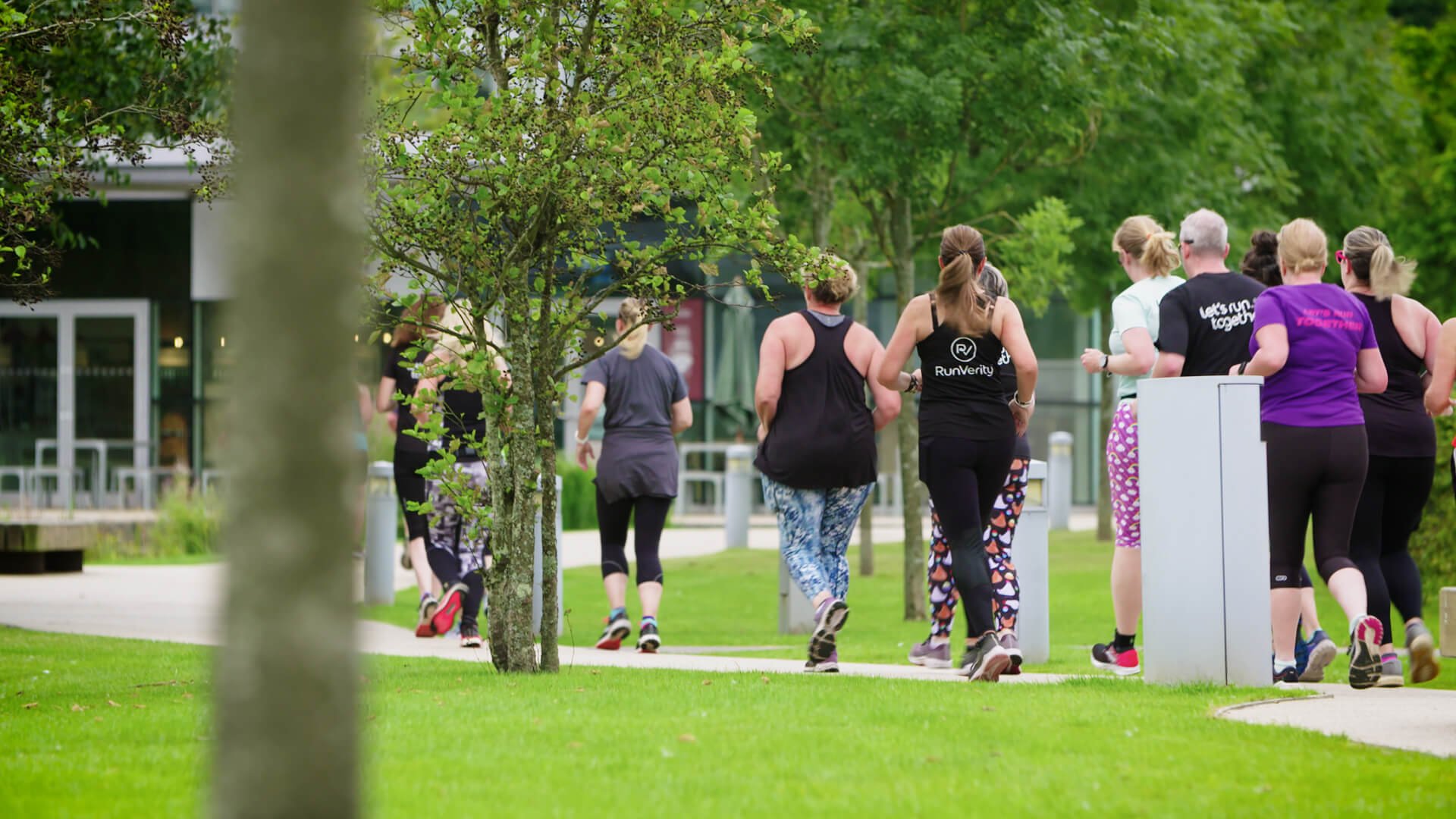
RunVerity Beginner’s Week 1
Welcome from Head Coach Verity
A common reason runners stop running is there’s often an underestimation of the importance of understanding some of the barriers that prevent us from getting out of the front door.
I know from my own experience when I plan a run it often begins with feelings of excited anticipation, I imagine myself running with wild abandon as I remember the feel-good feelings that I feel once the run has finished. I sometimes imagine the conversations I’ll have with my running buddies as I look forward to catching up.
But I also know at any point between putting my running gear on and stepping out of the front door, there can be a number of unexpected factors—like bad weather, a last minute cancelation from my running buddy, or a smudging of doubt about how the run will feel, sometimes in the form of self-talk, and — BAM! The path of good intention is paved with numerous reasons not to go and before I know it, I’m back on the sofa, having taken my trainers off faster than I can say "jog!"
Over the duration of the next 8 weeks I’ll be offering you a set of strategies to help you overcome your barriers.
Let’s Get Started…
Key Resources for Week 1.
-
May Beginner’s WhatsApp
-
Complete the “My Reasons to Run” worksheet.
Try and think how running aligns with who you are, and who you want to be.
Action
Write a letter or jot down some points to your future self, where running is an integral part of your life.
How would you feel?
How would people around you treat you?
What would life look life?
-
I am giving you permission to walk and to be a beginner.
If you haven't exercised for a while it is important that you get into the regular habit of exercising and developing your fitness, you need to give your bones, muscles and tendons the foundations they will need to becoming a runner without injury.
This is achieved by putting walk breaks into your running, walking is not cheating or quitting, it is vital as doing too much too soon could result in you not finishing the course. Walking puts the body through the same range of motion as running, but with less stress impact on the hips, knees and ankles. You may not be moving as fast but walking builds a good infrastructure for running, especially when combined with the correct posture and techniques we learnt last night.
Taking a walk break makes a difference to your running, it may be the difference between you going out for 10mins or 20mins as you are giving the body chance to recover and then go again. This will give you confidence as you build up your endurance and hopefully enable you to enjoy running a bit more.
And if anyone sees you out walking, they don't know that you haven't just finished a 20 mile training run!
-
Being out of breath when running can cause you to feel serious panic and discomfort which makes you want to stop. In my experience the most common causes of being out of breath is that you can be running too fast and too soon. Here is my advice:
We always warm up in our groups but if you are running on your own make sure you take the time to properly warm up by walking briskly for 3-5 minutes. This will allow your respiration to gradually increase and your diaphragm to adjust to more vigorous breathing as well as allowing the nervous system to calm down.
Start out slowly when you first start out on a run as this allows your respiration to continue to increase gradually from the warm up. Make sure you add the short walk breaks in your run, as this allows you a brief moment to recover and allows your breathing th time to catch up. I suggest that you put your walk breaks in before you become breathless, listen to your body, if your breathing becomes laboured stop and walk.
Once you’ve slowed your pace down you can get into a nice rhythm, even if you feel you could walk faster keep the pace slow; you are still running.
When running your oxygen consumption increases so breathe through your mouth and nose to get enough air into your lungs. You can get a lot more air in by breathing through the mouth as the opening in the back of the throat is almost ten times larger than your nose.
Be patient.
Avoid fatty foods or large meals right before your run, give yourself two hours to digest a meal as having a full stomach or heavy, fatty foods can play havoc on your stomach and diaphragm as you begin to breath and bounce.
Running can give you the confidence to achieve things that you never thought you could, it enables you to have time out from day to day life and it keeps happy levels topped up. However, it is also hard work and some days over the next 8 weeks you may find it hard to get out of the front door, you may have had a bad run and your confidence has been knocked, but keep at it, trust me we all have bad runs.
Slow it down, focus on your posture and if you can't talk you are going too fast :)
Week 1 Homework
1.
Warm up by walking briskly to increase the heart rate.
2.
Run for 1 min, walk for 1 min x 2, then increase running to 90 secs with 1 min recovery x 5.
3.
Increase to run for 2 mins with 1 min recovery x 2. Don’t forget to cool down!
